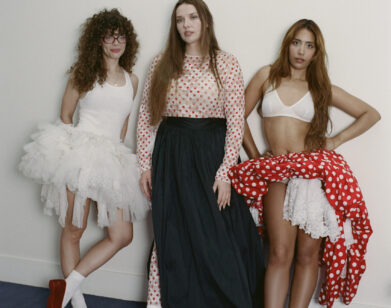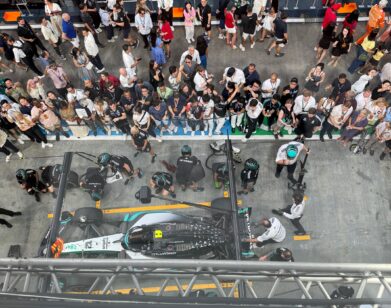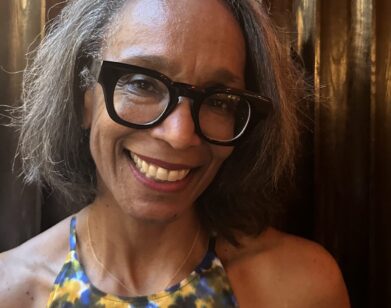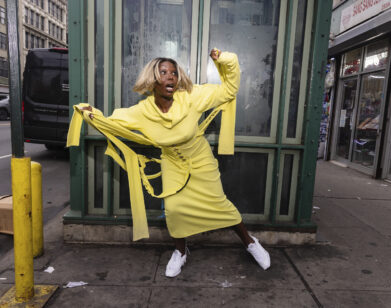virgil was here
15 Creatives and Fans on How Virgil Abloh Changed Everything
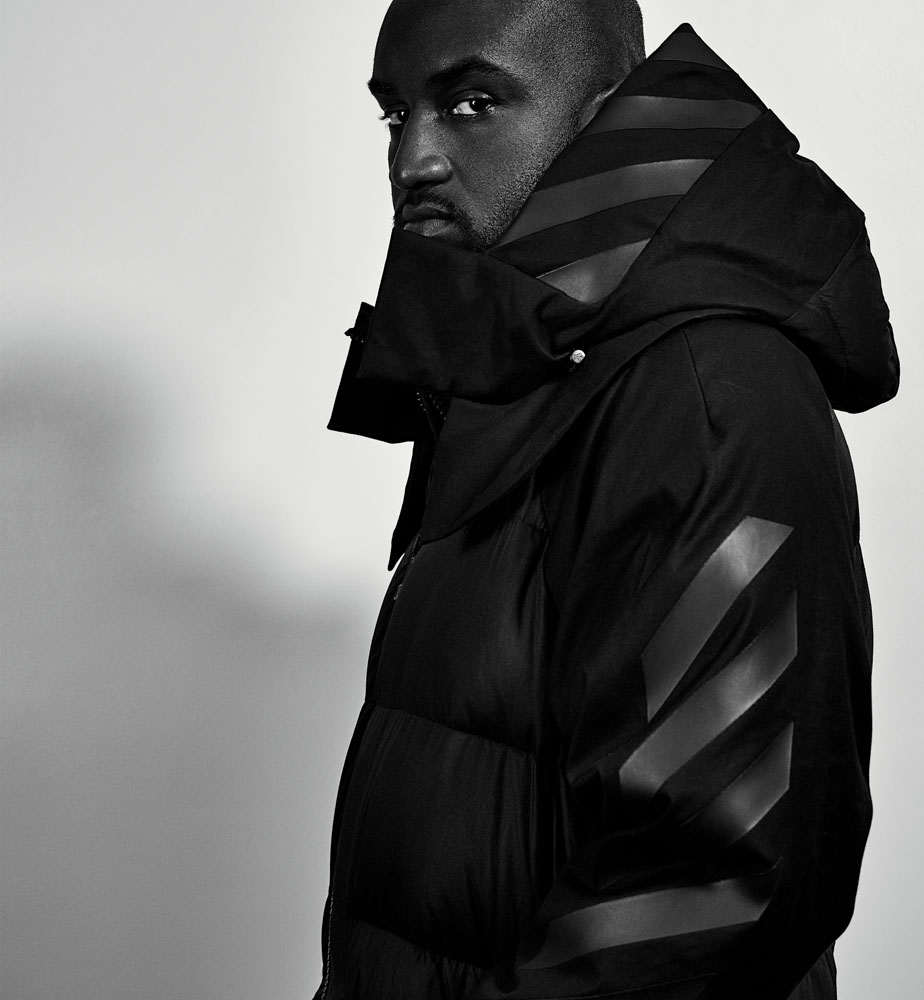
ADAM WRAY
Writer and Editor, MONTREAL
Virgil seemed to bend time. The work ethic that gave way to his sprawling body of work is exhaustively documented, the relentless travel schedule that seemed to put him in multiple places at once well understood. He was a conduit, bringing people together on personal and professional levels, speaking big brother-style across generations, gaining access to positions of considerable power and inviting all those who inspired him along for the ride. In this way, his work functioned sometimes as a corrective, proposing alternate presents, the way things should have been, and making them real—without Virgil, Nigo isn’t named Creative Director of Kenzo. Like, of course Nigo should run an LVMH brand. Of course Louis Vuitton should make shoes for Lucien Clarke to skate in. Virgil did things that surprised you, but, once done, seemed so obvious.
He was so funny, too—that’s something I don’t think gets mentioned enough. The quotation marks, the persistent ALL CAPS, the fastidious labeling. Lately he’d been designing Jordans with portholes he encouraged wearers to cut out at home like their own mini-Matta-Clarks. It’s a gesture encouraging one to consider the sneaker’s design afresh—it’s also hilarious. He understood the efficacy of humor as a vehicle for big ideas as well as any designer working. This was also a way for him to work above language, and so to be truly global. I thought it was so smart when he adopted the diagonal hashmarks for Off-White, imprinting himself on something so abundant, so everywhere—kids would tweet him photos of diagonals painted on city streets and he’d retweet them, bringing them into his world, keeping up a conversation. I remember visiting Seoul in 2015 and seeing fake Off-White everywhere, feeling like the future was pulling up imminently. For V, design may have been the freshest scam, but it was a labor of love, too. He had fun with it right up to last week’s show in Miami. Watching the stream from my apartment in Montreal, the looks finished with bulbous, monochrome hockey gloves hit me in the gut. I still remember exactly what my first pair of hockey gloves looked like—made by Koho, black and orange and white, Philly colors—and what it felt like to wear them to play pick-up with the kids in my neighborhood. If you’ve never worn hockey gloves, I encourage you to try them on—they feel fun, the way fashion should feel. Thanks for the reminder, V.
I think Virgil truly believed that you could insert an idea into the cycle of production and consumption that drives visual culture that could scramble it enough to meaningfully shift the status quo. I’m not sure how much further ahead he’d thought, to what end he wanted to see that system scrambled, but I think that he trusted the people who were on his wavelength more than those currently running the show, and that was enough—whatever they’d do would likely be better than where we were at, and even if it wasn’t, they deserved their shot. Virgil was an unflagging optimist, a man of faith. Rare qualities these days.
His passing doesn’t yet seem real—so shocking, so sudden, so cosmically unfair. We all feel that, like a bomb just dropped and we’re waiting for the ringing to give way once more to discernible sounds. I am not looking forward to a fashion week without Virgil, without the fantastical sets, the shows crackling with a sort of heavy whimsy. Virgil and his team made fashion a lot warmer, a lot brighter, a lot more exciting. It’ll take a long time to fully grasp the extent of his influence. You’d start by talking to the teens for whom he was a stylist, DJ, librarian, interior designer, and more, then check in on where they’re at in a decade. Only then will the picture start to become clear.
———
SALVADOR COSIO
Menswear Editor & Stylist, CDMX
Virgil changed the way we look at creative directors. He discarded the purist and bourgeois idea of formal training in fashion. Now we know that, no matter your background, your vision and your ideas can revolutionize any institution.
———
TY GASKINS
Style Editor, NYC
“To say Virgil was a visionary is an understatement. The first time I experienced working with Virgil was on an Off-White x Nike editorial shoot in 2018. Within a short period of time, Virgil changed the cultural landscape of fashion through his innovative and genuine approach to design. Through his immeasurable ambition, he removed so many barriers that stood in the way of creators at a time when the industry felt lost. Virgil often said, “Everything I do is for the 17-year-old version of myself.” His influence went far beyond himself, he reached countless others, including myself, who could finally see someone like myself in the industry. He was and forever will be a symbol of progress for our generations and the many others to follow. Now is only the beginning of his weight, and it will only continue to grow within us all.”
———
JOSE CRIALES-UNZUETA
Fashion Writer, NYC
“I think it’s safe to say that Virgil Abloh’s work changed the culture around fashion and within fashion. His work and presence in the industry allowed many to see first hand the ways in which fashion is interconnected with culture and to other practices and industries. He used fashion as a cultural tool to engage with fans, customers, and peers across different disciplines, and his collaborative approach encouraged a new generation of designers and fashion lovers to think differently about how they can approach fashion and become a part of the industry. Virgil’s nature as a polymath was also inspiring and aspirational, he followed all of his passions at the same time and by doing so enabled many to do the same.”
———
JOSEPH MAGLIERI
CFDA, NYC
“Virgil’s impact on culture is both indelible and revolutionary. He changed culture by constantly exhibiting the universality and interconnectedness of fashion, art, music, social innovation, community, and the sacredness of personal development. His influence on the way we think about culture is also as much about the way we think about legacy. Some people open doors and others pave roads. Virgil did both. He changed culture with intention by amplifying new waves of talent, and through embracing futurism. Virgil shifted the way we think about culture by encouraging all of us to explore the multiplicity of our creative identities.”
———
KIM RUSSELL
Fashion Historian/Researcher, Australia
“We all have our own perceptions of what the culture is. Virgil showed me a completely different side, his perspective. He introduced me to so many fantastic new artists, designers, models who are changing the landscape. We’re all doing it together, I feel blessed to have been alive see what he was doing for the culture.”
———
RUTH GRUCA
Stylist, NYC
“EVERYTHING IS ACHIEVABLE. Virgil had a way of making any idea seem possible. He didn’t believe in boundaries—I never heard him say the word no. He approached every situation with positive, kind-hearted energy unmatched by anyone I have ever worked with. These attributes combined allowed him to change the world forever. He broke the boundaries of what it means to be a black man in the fashion industry. He broke the boundaries of what it means to be human.”
———
KUNLE MARTINS
Artist, NYC
“It was super important for me to see someone so successful be so inclusive. A beautiful example of “we not me.”
———
RAUL LOPEZ
Designer, NYC
“Virgil was more my brother than my friend. When I met him many moons ago I knew we were family. Always super supportive of everything I did encouraged me to always keep going. He said ‘Raul no one can ever take away what you have behind you.’ I said ‘What is that?’ he said you have ‘creativity, street cred, community and family and that is special.’ I always asked him for advice. Even when he made it to the top he always made the time to answer me and all his fellow friends and family. When people make it to the top people always say ‘oh they forgot about me.’ People don’t forget. People choose to look down on you and Virgil never did that. Virgil was a visionary creative nerd that changed spaces all around the world and connected many.”
———
JAWARA WAUCHOPE
Hairstylist, NYC
“Virgil put our culture, something that is very dear to me, in places where it isn’t usually welcomed by authentically being an example of what a man/human from our culture does for his people.”
———
ALOISO WILMOTH
DJ and Cultural Critic, South Bend, Indiana
“Virgil changed the way I thought about culture by transcending cultural barriers. The way he approached design was much like DJing, mixing different genres together—stitching an entirely new narrative from the bottom up.”
———
EMILY SEGAL AND MARTTI KALLIALA (NEMESIS)
Design and Strategy Consultants, LA & Berlin
“What did Virgil teach us about culture? That the reverse of the classic Terrance McKenna line, ‘culture is not your friend,’ is equally true. Culture is, in fact, your friend, and always can be.”
———
ERIC MCNEAL
Stylist, NYC
“Virgil made all of us see possibilities everyday. He opened doors and gave opportunities to everyone by building a community around his work, that’s his legacy.”
———
LOUIS PISANO
Fashion Writer/ Influencer, Paris
“Virgil changed the way I think about culture in the way that everything can be a starting point for art, that there’s not just one particular way to be a designer or an artist or whatever. Every facet of our culture makes us who we are and is valid in spaces where the cultural climate is often homogeneous, that there’s not a need to fit a preconceived mold or to assimilate. Virgil was himself through and through, he broke barriers and he will remain a cultural touchpoint throughout history for it.”
———
KAI-ISAIAH JAMAL
Poet, London
“He was culture, in the truest and rawest sense. He was a web of stories that he sourced, strained and squinted for, a button that held us all with our individual narratives and paths into one place. He made me believe that there were good people in the world, that not only wanted to restore culture but understand it, shape it, change the discourse of it, invite people into it. Not only this but in a world where often we were so far from home, he took it with him everywhere. Blackness was in his back pocket at all time. That reminds me that wherever I am, whatever room I am in (even if I’m the only one who looks like me) I am carrying culture whether that be ancestors, a generation, a choir, a history, a community. He was the signpost of of culture in so many ways. He was the past colliding with the future in the present. I know how rare that is, and how rare it is that I’ll ever see that again.”
———
SYDNEY REISING
Publicist, NYC
“The lessons are limitless.
When I met Virgil I was 24 years old. I had just left the luxury fashion world, having started very young at Versace. I decided to start a PR agency for the sole purpose of elevating the next generation. I wanted to champion a new era, one that I believed in, for the sake of the culture. When I met Virgil I felt so completely seen. The larger fashion industry did not yet understand, but I felt validated by Virgil and his endless support. He got it.
Virgil showed me the power of persistence.
Once we started working together it was insane to see him multitask up-close. DONDA, PYREX, #BEEN #TRILL…so many things. Still, despite all his projects, he was consistently there to help, bounce ideas off of, lend a favor, and offer advice. A text never went unanswered.
Virgil showed me the power of accessibility.
He asked if I needed a logo. He consistently brought thoughtful and selfless collaboration to the table. I remember asking him to look at Pyer Moss in 2013. I sent him the look book; within the hour he had hooked us up with Easy at RSVP Gallery. That was the genius of Virgil, he was in it to further the people around him, not himself.
Virgil showed me the power of a purely altruistic gesture.
I’m eternally grateful to have been blessed by his wisdom and I know his legacy will unfold around us for the rest of our lives through the coming generations. The impact is everlasting.
Virgil showed me the power of forever.”

